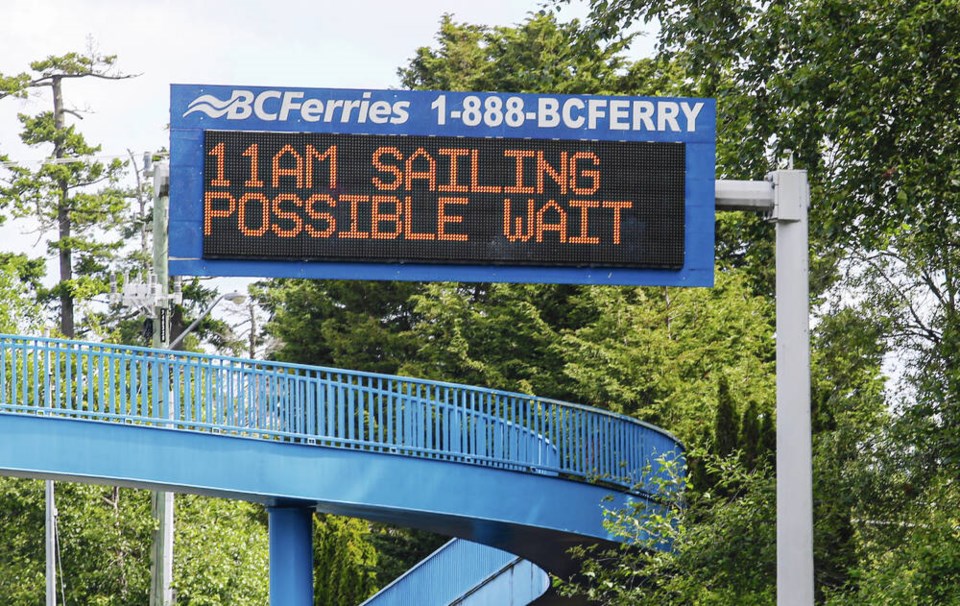B.C. Ferries is warning customers to expect service disruptions in the coming weeks and months as the fast-spreading Omicron COVID-19 variant — and the flu season — takes a toll on staff.
Spokeswoman Deborah Marshall said a vaccination requirement has already reduced crew availability and a global shortage of professional mariners has made it difficult to hire replacement staff.
She said routes could also be affected by more severe weather.
The biggest impact could be on routes to or between small islands, said Marshall.
B.C. Ferries employs about 5,000 workers on the coast.
The corporation said in November that all employees and contractors who work on board vessels needed to have their first dose of COVID-19 vaccine by Nov. 15 and their second dose by Jan. 24. The remainder of B.C. Ferries’ workers must be fully vaccinated by Feb. 28.
The company has said failure to meet the deadlines will result in employees being put on leave without pay.
Eric McNeely, president of the B.C. Ferry and Marine Workers’ Union, said the vaccination rate among its 4,000-plus members is about 80%, but varies by region.
He said the vaccine mandate is slowly eroding the workforce, and those still working are “starting to burn out.”
He said losing 10% or 20% to a vaccine mandate or even more to sickness caused by COVID-19 — “that’s a part of the workforce that’s hard to replace.”
Provincial health officer Bonnie Henry warned last week that B.C. businesses could lose up to a third of their workforce to illness as a result of the Omicron variant.
McNeely said about 1,000 union members are 55 and over, and may choose retirement if they’re facing burnout.
He believes B.C. Ferries should have been more proactive in recruiting and promoting within its own ranks instead of trying to hire internationally.
“It’s been a rough couple of years on ferry workers since COVID started,” said McNeely.
Marshall said crewing is a complex task that requires crew members with specific qualifications and a certain number of skilled mariners for roles onboard each vessel.
“Regulations require these positions to be filled with the appropriate crew, or the vessel cannot sail,” she said. “Even a small number of crew that are unavailable to sail can have a significant impact on service if replacements are challenging to find.”
B.C. Ferries relies on staffing pools with crew held in reserve, “cross-training” employees so they can be redeployed from one location to another and overtime pay for employees who cover gaps.
When the company can’t juggle the crews quickly amid shortages, it has to cancel or modify the service.
Marshall said B.C. Ferries tries to announce service disruptions as quickly as it can.
In some cases on the small island routes, it contracts water-taxi services — as it did last month and earlier this year on Texada and Gabriola islands — where water taxis exist and are available.



